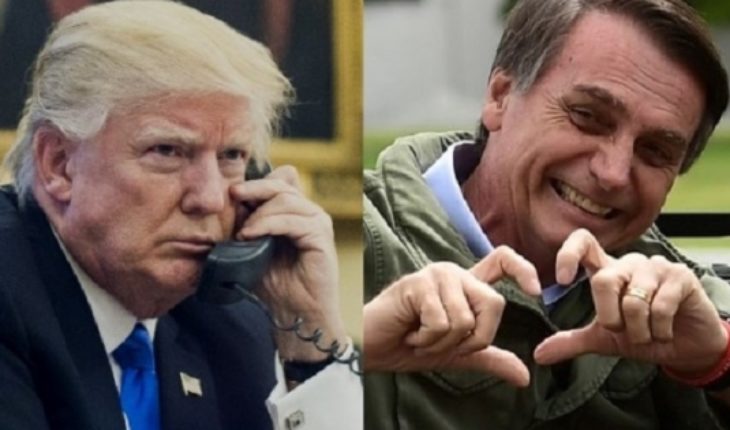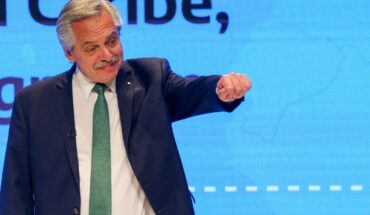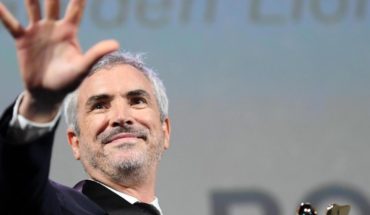when the Secretary of State Mike Pompeo appeared in Brasilia the day new year’s for the takeover of the elected President of Brazil, Jair Bolsonaro, should prepare for a bad Press.
The incoming leader of the second largest economy in the Western Hemisphere campaigned as the strongmen of Latin America’s past. A newspaper scored his victory in October with the following title: “fascism has come to Brazil”. A headline in a foreign policy magazine compared his political style with Joseph Goebbels.
These warnings are not without merit. During his campaign, Bolsonaro encouraged the police to kill criminals, an echo of the policies enacted by the Philippine President Rodrigo Duterte. As a politician, Bolsonaro has become nostalgic for the bad days of the military dictatorship in Brazil. And it sounds like a vulgar when talking about gays and lesbians.
So it may seem a little strange that the State Department sees many opportunities in the new President of Brazil. As a high-ranking official told reporters last week: “the last free and fair election of Brazil shines as an example of the vibrant democratic institutions of the country and presents an historic opportunity to strengthen the ties between our two countries”.
To understand where Pompeo and diplomats come from, consider what came before Bolsonaro. The last elected President of Brazil, Dilma Rousseff, was accused in 2016. His predecessor and mentor, Luiz Inacio Lula da Silva, was convicted in April on corruption charges related to a system of bribes from long duration that enriched executives and political patterns of the State. It is not surprising that Bolsonaro has appointed the judge who presided over that investigation to be his Minister of Justice.
Meanwhile, the homicide rate in Brazil has increased, with more than 61 thousand murders in 2017. Bolsonaro demagoguery is a response to a collapse of the law in order in the two cities of Brazil, where street gangs have supplanted the police in some neighborhoods.
The previous Government was also a foreign policy disaster. Even though he was reluctant to deepen ties with the United States, he sought to strengthen relations with Venezuela and Cuba. Bolsonaro campaigned against what he sometimes called a strategy of predatory investment from China, encouraged by the former regime.
Here is where Pompeo sees promise. The new leader of Brazil can be a vulgar populist, but also wants to be a partner to counter the growing influence of China and to deal with the disgrace of the mismanagement at Venezuela.
In this sense, Bolsonaro is similar to the Crown Prince of Saudi Arabia, Mohammed bin Salman. Both men are willing to aggressively support regional and strategic objectives of the United States in a way that it were not their predecessors. At the same time, both leaders have authoritarian personalities that will undermine these goals if it does not control them.
The key to Pompeo will be to avoid the mistakes the Trump Administration has made with Saudi Arabia. In particular, it tolerated the bad mischievous tendencies of the Crown Prince, which finally led to the murder of the journalist Jamal Khashoggi. A little hard on the part of Trump management love could have led the Saudis to think twice before the debacle in Istanbul.
This is the kind of approach which Pompeo needs to take now, but will have to find a delicate balance. On the one hand, it should pursue with enthusiasm the prospect of strategic cooperation with Brazil. If Bolsonaro wants to isolate the strongman of Venezuela, Nicolás Maduro, or make to China seem harder to swallow pieces of the Brazilian economy, then the United States should encourage it.
On the other hand, Pompeo also must make it clear that if Bolsonaro continues a war Duterte-style against the criminals, or attacking the democratic institutions of the country, you will find that his Government has no friends and is isolated.
I pompeo has much work for it. Bolsonaro has already shown who is in his political career. He famously spent their vote to dismiss Rousseff in 2016, for example, to a notorious torturer of the military junta. It is not difficult to argue that it is better to keep the new Brazilian Government to distance.
But this approach of Bolsonaro, although satisfactory, would throw away the leverage that comes from being a powerful friend. In Saudi Arabia, the United States did not use this lever to stop the worst impulses of an ally, and now it may be too late. In Brasilia, Pompeo has the opportunity to avoid repeating that mistake. When you meet with the winner of the last election of Brazil, it should emphasize the importance of having the next.
Poured in this op-ed content is the sole responsibility of the author and do not necessarily reflect the editorial line nor the counter position.





